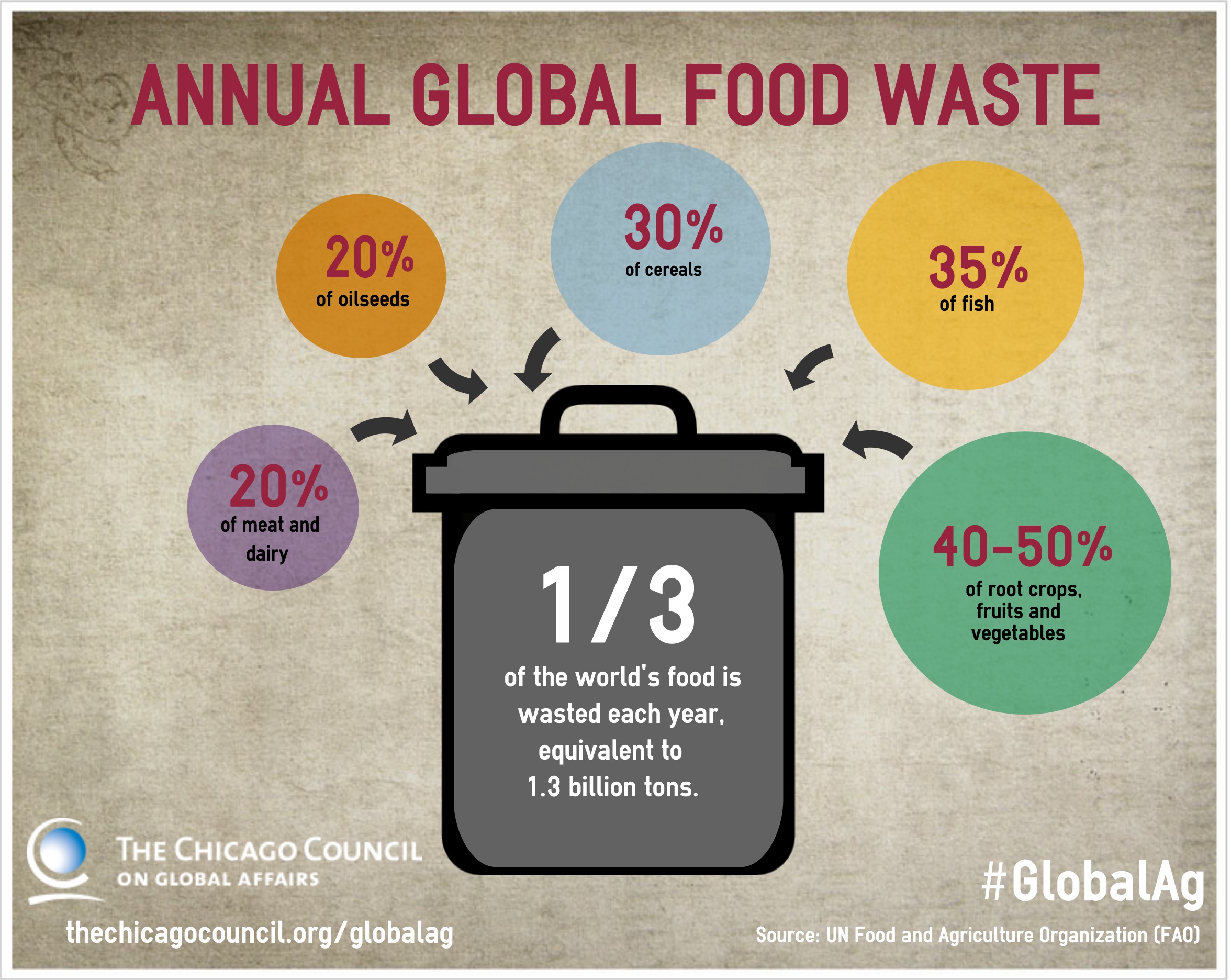FAO Report:
-
According to recently released report “Preventing nutrient loss and waste across the food system: Policy actions for high-quality diets”, one-in-five deaths is associated with poor-quality diets.
-
It shows that regularly eating poor-quality food has become greater public health threat than malaria, tuberculosis or measles. The report was published by United Nations Food and Agriculture Organization (FAO).
-
More than half of all globally-produced fruits and vegetables are lost or wasted annually.
-
Around 25% of all meat produced, equivalent to 75 million cows, goes uneaten.
-
About one-third of food produced for human consumption never reaches consumer’s plate.
-
Global food loss or waste annually is estimated to be around $1 trillion.
-
Nutrient-rich foods, like fruits, vegetables, seafood, meats are highly perishable, so susceptible to losses throughout increasingly complex food production systems.
-
Globally, agriculture produces 22% more vitamin A required for human consumption, but after loss and waste, amount available is merely 11% per cent less than required.
-
In Low-income nations, food is mostly lost during harvesting, storage, processing and transportation while in high-income nations problem lies in retail and consumer level waste.
-
Together, they directly impact number of calories and nutrients actually available for consumption.
-
Reducing food loss and waste, mainly high-nutrient foods, has nutritional benefits and also contributes to Sustainable Development Goals (SDGs).

FAO recommended solutions
-
Policymakers need to reduce food loss and waste in order to improve access to nutritious and healthy food.
-
Food systems that increase availability, affordability and consumption of fresh, nutrient-rich food for everyone must be put in place to tackle all forms of malnutrition and to promote healthy diets.
-
Series of policy actions should be taken across entire food system, including educating all concerned, focusing on perishable foods, improving public and private infrastructure and closing data gaps on food losses and waste.
-
Reducing loss and waste of nutritious foods could yield substantial health benefits, given direct impact on wellbeing, learning capacity and productivity.
-
Cutting down on food waste will yield major economic benefits.
-
Besides, eating more of food already produced, will avoid wasting water, land and energy that went into its production.